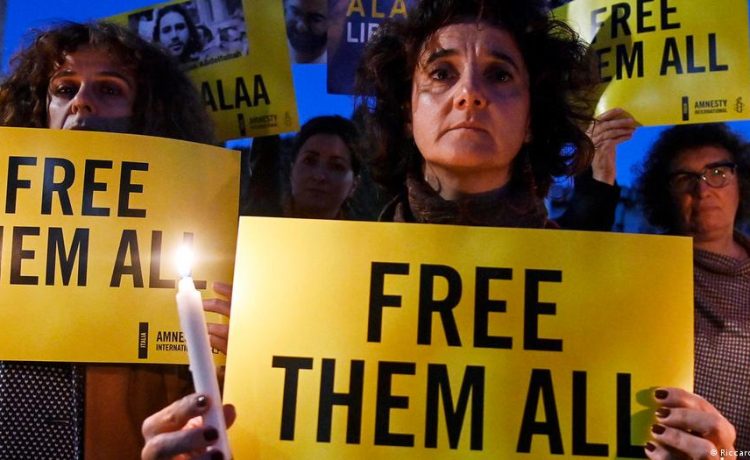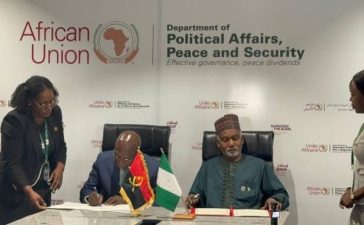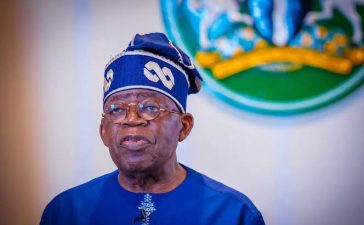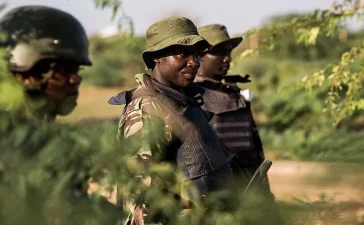This week marks a decade since the coup that installed Egypt’s current government. On July 3, 2013, Egypt’s military removed the country’s first democratically-elected president from power and set up an interim government.
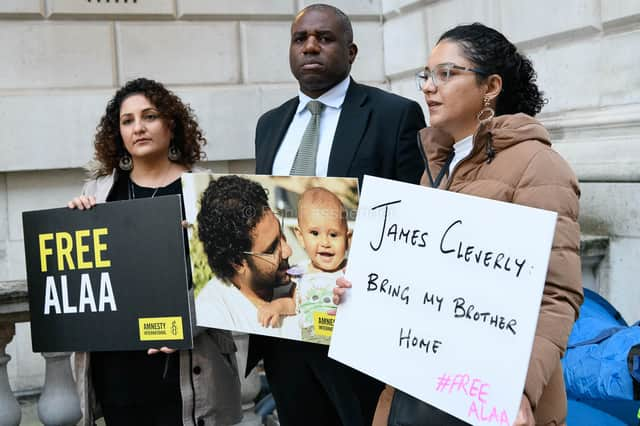
At that time, with Egypt’s politics and economy in turmoil, a senior general in Egypt’s all-powerful military, Abdel-Fattah el-Sissi, told his fellow citizens that the military had ousted Islamist President Mohammed Morsi because he failed to create “a national consensus.” But, el-Sissi promised, the military had no interest in retaining political power and would facilitate a return to democratic civilian rule.
A decade later, el-Sissi is still in power. And in many aspects, the situation for ordinary Egyptians is worse than ever. The economy is in crisis, saddled with foreign debt, surging inflation and a currency that has depreciated by nearly half. An estimated third of Egypt’s 105 million people live in poverty, and the most populous Arab nation is currently selling off or leasing government-owned assets, like Telecom Egypt, public transport or ports, in order to finance its foreign debt obligations.
At the same time, el-Sissi has tightened his grip on power. Independent journalists and anti-government activists have been harassed or arrested. One formerly jailed Egyptian activist told the investigative journalism website, Coda Story, that they had seen military officers stop people on the street, check their phones and then arrest them after finding they had posted, liked or joked about the Egyptian government or military on social media.
Freedom House, the US-based democracy monitor, has classified Egypt as “not free” and the country’s freedom rating with the watchdog, already meager, has slowly eroded over the past five years, going from 26 out of 100 in 2018, to 18 out of 100 this year.
For comparison, Morocco scores 37 out of 100, while Germany gets 94.
Egypt has become a world leader in capital punishment and new laws, including one that forces nongovernmental organizations to register with the state, have seen space for civil society or activism shrink even further.
Observers say Egypt’s regional neighbors and Western allies take an unbalanced approach to these issues. Egypt’s economic issues are regularly mentioned while the country’s rapidly worsening human rights record gets far less attention, they say.
In early 2022, over 170 members of various European parliaments wrote an open letter to their own top diplomats and ambassadors to the United Nations’ Human Rights Council, asking that a special body be established to monitor the deteriorating human rights situation in Egypt. The letter came just before the annual meeting of the council.
“We are extremely concerned about the international community’s persistent failure to take any meaningful action to address Egypt’s human rights crisis,” the politicians wrote. “This failure, along with continued support to the Egyptian government and reluctance to even speak up against pervasive abuses has only deepened the Egyptian authorities’ sense of impunity.”
But a year later, shortly before the next annual meeting of the council, seven human rights NGOs published another open letter, which found that there had been “no consequential follow-up […] despite the fact the human rights situation in Egypt has further deteriorated,” said the letter, signed by seven organizations, including Amnesty International, Human Rights Watch and Reporters Without Borders.
Sanaa Seif has campaigned tirelessly for her brother’s release — he’s just one of hundreds of thousands of political prisonersImage: Kin Cheung/AP/picture alliance
Visiting Germany last summer, Sanaa Seif made similar complaints. The sister of Egyptian dissident, Abdel-Fattah, one of the most high-profile political prisoners in the Arab world, Seif met politicians in Berlin while advocating for his release. She wasn’t allowed to disclose who she met, though.
“It doesn’t make sense to me when I see German politicians shy away from talking about human rights,” Seif told DW at the time. “It’s like they don’t want to rock the boat.”
There are a number of factors, said Timothy Kaldas, deputy director of the Tahrir Institute for Middle East Policy.
Located at the crossroads of Africa, Asia and Europe, Egypt is in a very strategically significant location and, with its large population and big military, has long been considered an important regional power. As such, Egypt also has a long tradition of playing different international allies off against one another.
“So when Egypt is pressured by the Gulf states, they could turn to the US, and when pressure came from there, they could turn to France,” Kaldas noted. “This often comes up in meetings. If you go to meetings at foreign ministries or at international financial institutions and talk about conditionality [on human rights] somebody will say, ‘Well, what if they just go to that other place instead and we lose access?'”

